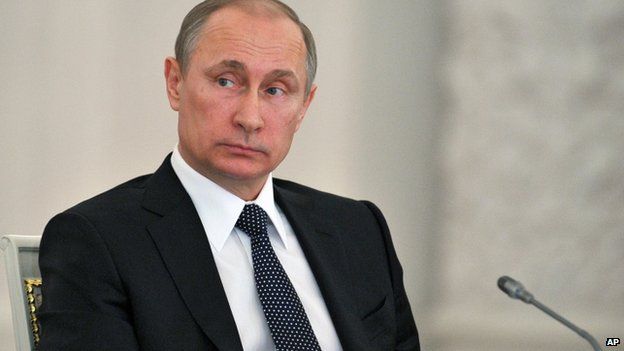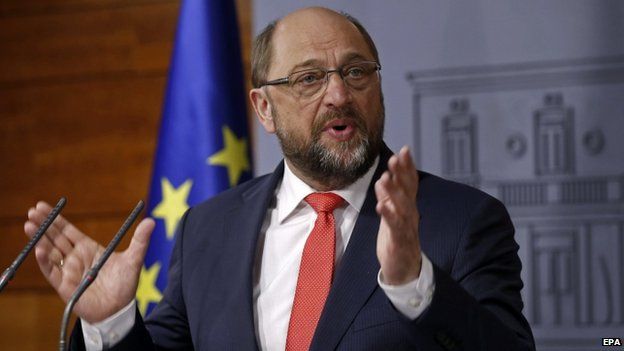Greek leader Alexis Tsipras in Moscow for Putin talks
- 3 hours ago
- Europe
Greek Prime Minister Alexis Tsipras has arrived in Moscow for talks with Russian President Vladimir Putin, as Greece struggles with a debt crisis.
Greece is embroiled in negotiations with the EU and IMF to unblock a bailout package and could run out of funds within weeks.
Greek officials have previously pointed to Russia as a possible alternative source of financial assistance.
Analysts say Russia's own economic woes mean any help would be limited.
"Russia is not and cannot be a (EU) substitute for Greece, it can only be a supplementary option," said Constantinos Filis from the Institute of International Relations.


The two are expected to discuss ties between the EU and Russia, which were badly strained by the Ukraine crisis.
Before his arrival, Mr Tsipras described the sanctions imposed by the EU and US on Russia in the wake of its annexation of the Crimea as "a road to nowhere".
The European Parliament President, Martin Schulz, said Mr Tsipras should not break with the EU line on sanctions.
"Greece demands and gets a lot of solidarity from the EU. We can therefore also ask for solidarity from Greece and for this solidarity not to be ended unilaterally by pulling out of joint measures," he told a regional German newspaper, the Muenchner Merkur.
Russia imposed a ban on many western food imports in retaliation, but Agriculture Minister Nikolai Fyodorov has said the government could consider removing three countries, including Greece, from the embargo, Russian state media reported.

Analysis: Kevin Connolly, BBC News
The Greek government may play up cultural ties with Russia based on moments of shared history and a common religion.
But the truth is that Greece's memberships of Nato and the EU are central to its modern identity and crucial to its economic survival.
In theory a deal could be constructed where Greece could threaten to veto those EU sanctions in return for serious and sustained economic help, but in truth neither side is probably in a position to make such a deal even if it wanted to.
Russia has too many economic problems of its own to rescue Greece even if it were minded to. The Greek authorities are not in a position to alienate the rest of the EU by undermining a shared position on Ukraine.
Some sort of improvement in trade ties to bring Greek soft fruits back to the Russian market seems much more likely.

Mr Tsipras came to power pledging to end austerity, but his plans have met resistance from Greece's EU/IMF creditors, who lent the country billions to help it avoid bankruptcy.
Greece has not received bailout funds since August last year, with the EU and IMF dissatisfied with the pace of Greek reforms.
A Greek repayment of €448m to the IMF is due this Thursday.
On Tuesday, the Greek government said Germany owed Greece nearly €279bn (£204bn; $303bn) in war reparations for the Nazi occupation during World War Two.
It is the first time Greece has calculated what Germany allegedly owes.
But Germany says the matter was resolved legally years ago, and reacting to the claim Economy Minister Sigmar Gabriel said it was "dumb" to link Greece's bailout with the question of war reparations.
No comments:
Post a Comment